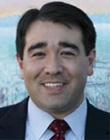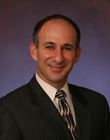California has become a fiscal train wreck. Year after year our state is sinking deeper in debt. Its credit rating is now the lowest in the nation. Soaring pension costs are damaging other important programs—including funding badly needed infrastructure. Many businesses have chosen not to locate or expand here. Others have fled the state. Our unemployment rate is the highest since the Great Depression.
A major source of these problems is that well-heeled special interests—particularly massive public employee unions—use their money to dominate the California legislature, damage the economy and discourage job creation.
Proposition 32, which will appear on California’s statewide ballot this November, will fundamentally change our electoral system. It is a tremendous opportunity for the people of California to literally take back our state. Specifically, Prop 32:
- Ends corporate and union donations to politicians.
- Makes political donations by individuals truly voluntary and stops automatic deductions of political money from employees’ paychecks.
- Contains no loopholes.
- Addresses both state and local government
- Allows all individuals—as provided in the US Constitution—to voluntarily donate directly to the candidates and to the organizations of their choice.
- Allows any organization to freely and independently express its views on candidates and public policy issues.
Under Prop 32 public employee unions will no longer be able to aggressively exploit automatic payroll deductions, amass huge political war chests and thereby do tremendous damage to our state. Instead public employees will be able to make truly voluntary political donations by writing a check—just like everyone else.
No one should be forced—as many currently are through automatic payroll deductions—to make political donations to candidates with whom they disagree.
Based on the results from other states with similar reforms, Prop 32 will make political donations truly voluntary and significantly level the playing field during election campaigns.
Don’t be fooled by many millions of dollars of TV ads—paid for by public employee unions using automatic payroll deduction—distorting the issue and attempting to mislead the voters. Instead, tell your friends about Prop 32 and be sure to:
Vote Yes on Prop 32!
For more information go to:
http://stopspecialinterestmoney.org or
http://yesprop32.com

Mr. Michael Mierzwa, P.E., from the California Department of Water Resources Division of Flood Management’s FloodSAFE Program Management Office presented at the September 19 dinner meeting. Mr. Mierzwa described the relationship between Integrated Water Management, the FloodSAFE Program and the Central Valley Flood Protection Plan. How the State’s current Central Valley Flood Control System developed was explained through a history of flood events and responses that have funded major flood control system improvements over the past 150 years. While historic flood control projects had focused largely on increased conveyance and flood control capacity behind dams, flood management is now considered along with ecosystem and water supply management to best achieve the various goals using a State system-wide investment approach (SSIA). Mr. Mierzwa explained how flood management includes:
- Preparing for, responding to, and recovering from flood events;
- Routine system monitoring and maintenance;
- Risk management through notifications and regulations;
- Risk reduction projects such as setback levees; and
- Risk assessment through levee conditions evaluations and flood modeling.
The 2012 Central Valley Flood Protection Plan (CVFPPP) would reduce the current huge risk to population, structures and the economy, especially agriculture, and provide for sensitive species that rely on the floodplains. The CVFPPP calls for $14 to $17 billion to implement a SSIA. Features of the SSIA include levee improvements and repair, setback levees and forecast-based system operations, improved bypasses, implementation of environmental conservation strategies as well as improvements to the other elements of flood management.
Please contact Harvey Oslick at hoslick@rbf.com if you would like a copy of the presentation.
Questions about the presentation may be directed to Mr. Mierzwa at mmierzwa@water.ca.gov.

In early September, the Sierra Chapter hosted an event for Peter Tateishi who is running for Assembly District 8. District 8 is a newly drawn Sacramento County seat that covers Citrus Heights, North Highlands, Carmichael, Arden-Arcade, Gold River, Rancho Cordova, Vineyard, Rancho Murieta, and Wilton. This new district has been identified as a key seat in determining whether the balance of power in the State Assembly will reach a two-thirds majority.
The Sierra Chapter members gathered at HDR’s downtown Sacramento office to hear Mr. Tateishi’s political priorities. His campaign is focused on three primary areas of concern: jobs, education and public safety.
In order to create jobs, Mr. Tateishi believes that California needs to improve the business climate. Improvements should include reducing business tax liabilities, providing legal reform against frivolous ADA and labor lawsuits, and placing three year freezes on future regulations to give certainty to businesses.
Mr. Tateishi explained the important connection between education and public safety. Protecting education funding and improving vocational education will provide more options to students. Increasing career options will capture more students transitioning from high school to the real world. Having more young adults as productive citizens strengthens our communities. Strong communities attract people and businesses which have positive effects on public safety.
To find out more about Peter Tateishi and his bid for Assembly District 8, you can visit his website: www.peterforassembly.com

Barbara Hayes is the President & CEO of the Sacramento Area Commerce and Trade Organization (SACTO). Ms. Hayes represents the region through marketing and recruitment missions throughout the U.S. and overseas to attract quality businesses to the area and strengthen ties with companies already in the area. During her leadership of SACTO, the organization has assisted in the successful location and expansion of more than 160 companies in the Greater Sacramento Area — including Apple, RagingWire, Siemens, and Mori Seiki, to name just a few. Prior to joining SACTO, Hayes held several positions within the California Trade and Commerce Agency.
She received her degree in International Relations and Economics from the University of California, Davis. She is a member of the International Economic Development Council, California Association for Local Economic Development, Industrial Asset Management Council and Corporate Real Estate Network (CORENET). She sits on more than 10 boards and advisory councils around the region and nationally having to do, primarily, with economic and workforce development.
At our October Meeting, Ms. Hayes will discuss the industrial trends and corporate prospects SACTO is working with and what it will mean to the Sacramento Region. She will also touch on the outcomes of a regional initiative designed to create catalytic economic change and accelerate job creation and investment.

Last month I noted that this would be a politically charged year given that there is an election just around the corner. I noted that ACEC-CA is supporting Proposition 32 and the Sierra Chapter is also fundraising for one of the local Assembly candidates. You may be thinking “we are engineers and surveyors, not politicians, why do we care?” Well, ACEC is first and foremost a business organization. Hopefully your company is a member because of the support and representation that ACEC provides your engineering business. When it comes to “watching our backs” as businesses operating in the engineering world, ACEC is our “go to” organization.
Both at the national and state level, ACEC staff and committee members are constantly monitoring new legislation that may be harmful, propositions that will stifle business, and agencies’ policies that are unlawful or simply unfair. On the positive side, ACEC actively promotes legislation and propositions that help protect our businesses as well as liaison opportunities with agencies. In addition, ACEC provides member firms with business start up tools and training such as contract templates and webinars related to business management issues.
By now you’re probably thinking “Steve, the topic at hand is politics, so get to the point already?” One of the lasting lessons that I’ve learned from helping to run a successful business is that it always comes back to who you know and your relationships. And when it comes to having a say as a political lobby the same basic premise applies. Which gets me to the real point of this message: Why does ACEC support specific candidates?
If you’ve read all the way to this point, hopefully you can surmise the answer. For those of you that skimmed to the bottom I’ll keep it short and simple. To be effective as a business organization and lobby, it is essential that ACEC have strong relationships with lawmakers (aka politicians) that support business. To be even more effective, we need business friendly politicians to be successfully elected. You may note that this is a non-partisan comment. Personally, I think it is important to make the distinction to focus on “business friendly” and less on political party. Indeed, ACEC has historically supported candidates from both political parties.
What are the risks of supporting a specific candidate? Probably the largest risk is what happens if that candidate doesn’t get elected. Won’t the other candidate hold a grudge against the organization, possibly making working with that newly elected more difficult? Perhaps, but if the organization limits lobbying efforts only to propositions and laws it will constantly be working in a reactionary mode instead of a grassroots proactive approach that attempts to slowly turn the ship in the direction of protecting and promoting California businesses.
I believe the proactive approach is worth the risk. Please feel free to send me your thoughts on this topic by emailing me at steve@cecwest.com.






